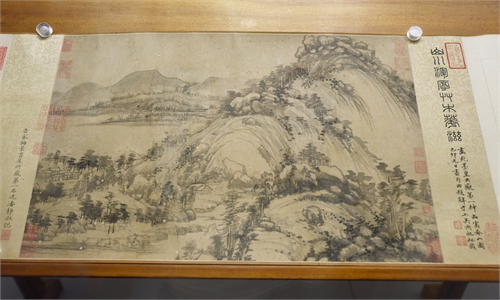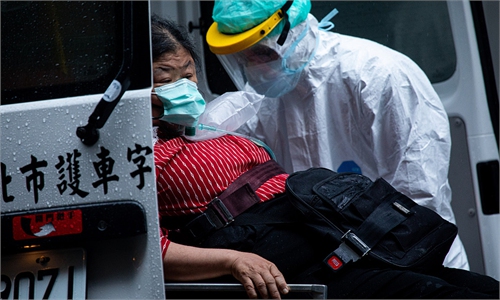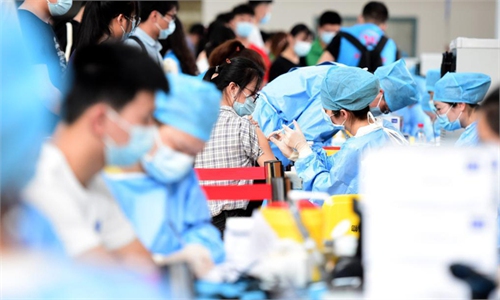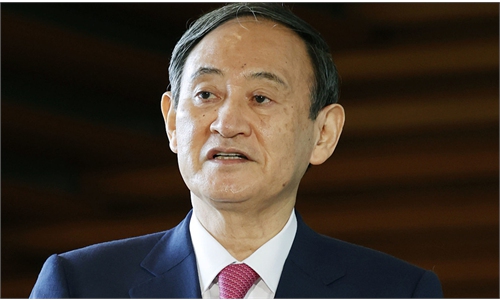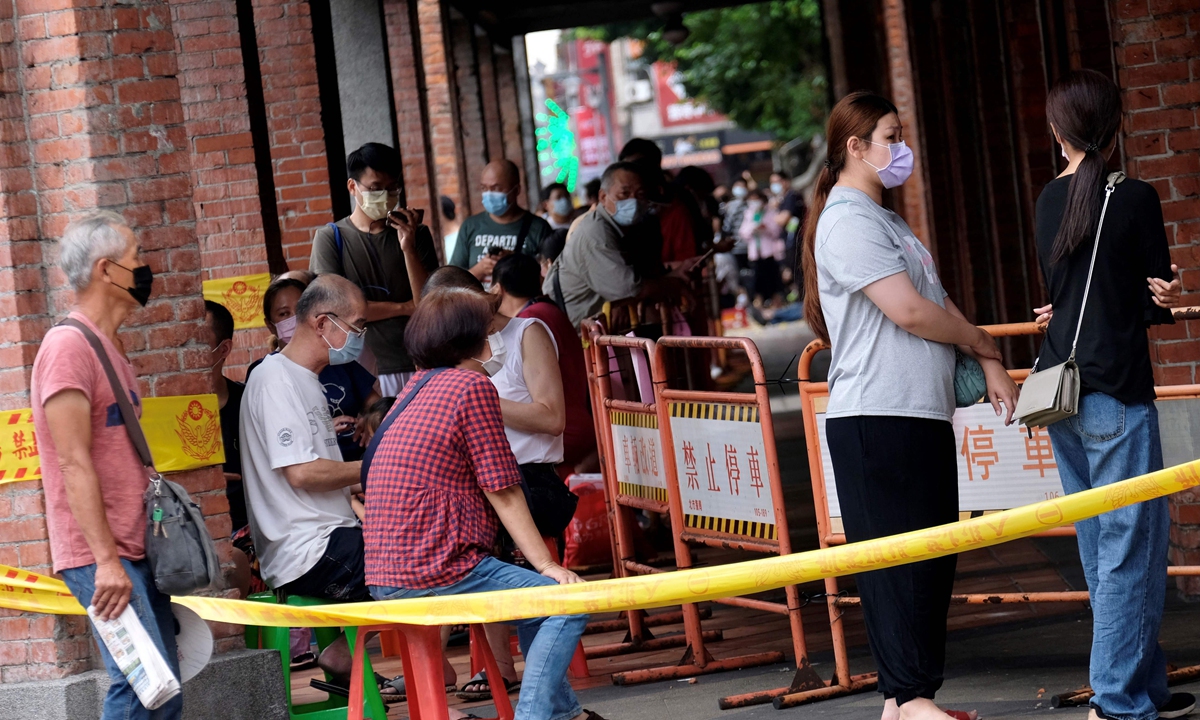
Residents on the island of Taiwan line up and wait for getting a COVID-19 nucleic acid test in Taipei on Tuesday. Testing on the island is 21 times more expensive than the mainland, hindering epidemic control of the island, which reported 240 new infections Tuesday after a record of 333 cases the previous day. Photo: VCG
While Taiwan leader Tsai Ing-wen rushed to express her gratitude to the US and Japan for donating COVID-19 vaccines to the island but shunned the mainland's offer, netizens and experts warned the Taiwan authority not to applaud too early for "lip service" and "questionable vaccines."
Experts warned that it is still doubtful when and how many doses the island of Taiwan will finally get from the US, as the US, which stockpiled vaccines for itself, had not delivered one single shot as of Thursday while having already made a promise of donating 80 million to the rest of world.
The White House announced Thursday that it will provide 25 million doses of COVID-19 vaccine overseas, of which 7 million will be sent to Asian countries and regions, including island of Taiwan and India.
On Friday, Japan delivered to Taiwan 1.24 million doses of AstraZeneca's coronavirus vaccine for free, Reuters reported.
Tsai responded quickly on Friday to the US and Japan's moves. She tweeted and thanked the US government for "providing assistance" in real time and said Taiwan has felt the warmth from the US, Taiwan news website udn.com reported.
Tsai also tweeted in Japanese that she is "glad that Taiwan and Japan can support each other" and "sincerely thanked each other for the deep friendship." after Japanese Foreign Minister Toshimitsu Motegi said on May 28 that Japan was considering providing COVID-19 vaccines to Taiwan.
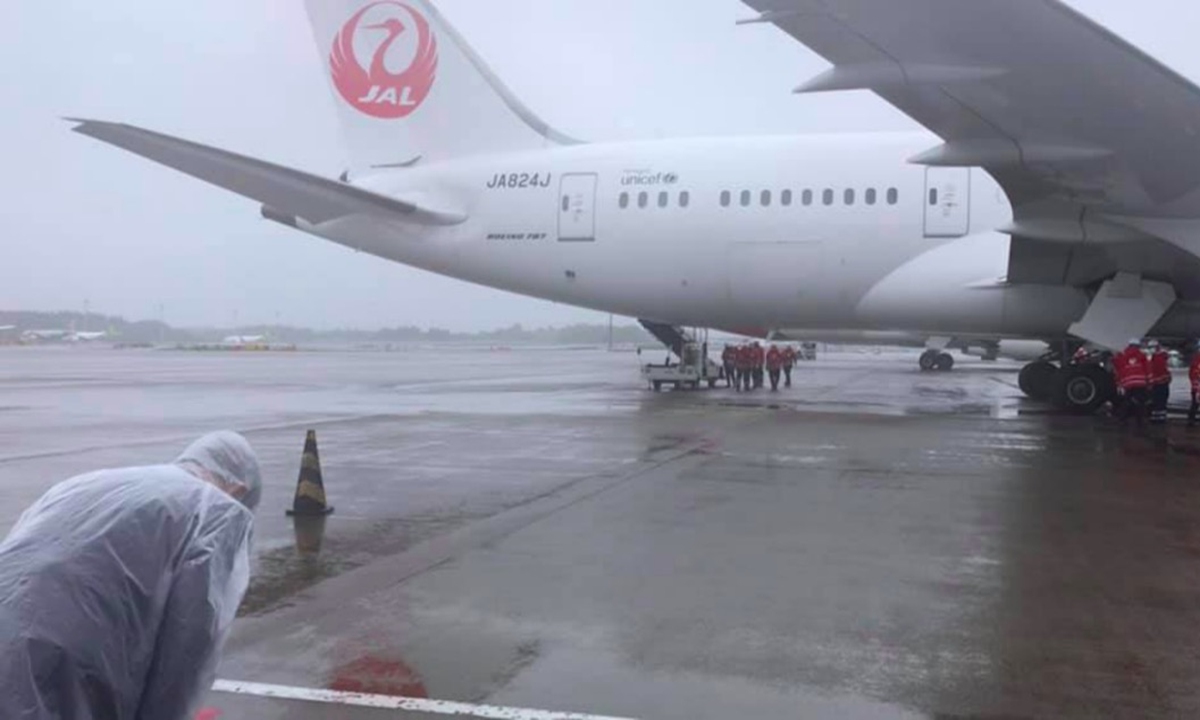
Photo from Hsieh Chang-ting's Facebook
On Friday morning, Hsieh Chang-ting, representative of the Taipei Economic and Cultural Representative Office in Japan, bowed in the rain at the airport to see the vaccines off. He said the vaccines were timely and he was very grateful, according to Taiwan media outlets.
Hsieh also posted several photos on Facebook, one of which shows him bowing to the fight.
His behavior drew backlash and jeers from netizens, who were angered by his "slave" behavior. "Bowing isn't enough, you should kneel down to thank the emperor," read one comment.
"It's totally a political stunt photo... What he has not done is only kneeling down."
Tsai's over-appreciation to the US and Japan faced criticism and mockery from netizens and experts, given the Taiwan administration's previous refusal to the mainland's offer of vaccines.
Some also worried that Japan is just dumping the questionable vaccine to Taiwan, given the fact that AstraZeneca's COVID-19 vaccine has not been included in the inoculation plan in Japan yet because of adverse reactions such as blood clots previously reported in Europe.
"You have rejected the vaccines that the mainland has given hundreds of millions of doses without any problem, but are receiving the vaccines that others don't want. What a shame!" a netizen said on Tsai's grateful attitude to Japan.
The mainland has expressed a willingness to provide Taiwan island with COVID-19 vaccines approved by the World Health Organization. But the Democratic Progressive Party (DPP) in Taiwan has made a raft of excuses to block vaccine delivery, leading to increasing infection cases and deaths on the island, Ma Xiaoguang, a spokesperson of the State Council's Taiwan Affairs Office, said Friday in response to Tsai's reactions to the US and Japan's vaccines donation.
"Is DPP's political survival more important than Taiwan residents' lives? Is it more important to foster herd immunity on Taiwan than to play political confrontations with the mainland? The DPP should give an answer to residents on the island," Ma said.
The DPP authority's response to the vaccine offers from the US, Japan and the mainland is in line with their "pro-US, pro-Japan, and anti-Chinese mainland" strategy, Wang Jianmin, a senior cross-Straits expert at Minnan Normal University, told the Global Times on Friday, adding that such aid may have some political motives.
Japan's offer, meanwhile, is also more like a gesture, as 1.2 million doses will not solve Taiwan's practical problems, Wang said. "Offering AstraZeneca vaccines, which it does not use, is more of a humiliation. The Taiwan authority is using such aid as a placebo to anesthetize themselves," Wang said.
Indian Prime Minister Narendra Modi is facing a similar awkward situation as Tsai. Soon after a phone call with US Vice President Kamala Harris over COVID-19 vaccine supply the same day, Modi tweeted that he "deeply appreciates the assurance of vaccine supplies to India" from the US.
"Keep your fingers crossed Mr. Prime Minister. Don't be so excited by the verbal assurance of this lady. After all, she will look after the interests of her country first…" an Indian netizen said on Twitter.
The US once pledged to supply India with more vaccines or lift the embargo on the export of raw materials needed to ramp up vaccine production in India, but was refused by the White House. Only after encountering criticism from the international community over their indifference and selfishness, the US administration in late April vowed to share 60 million doses of AstraZeneca's coronavirus vaccine with other countries.
Despite the Chinese government's offer to help India with necessary materials in its anti-epidemic battle, India has not purchased or approved any Chinese vaccine.
